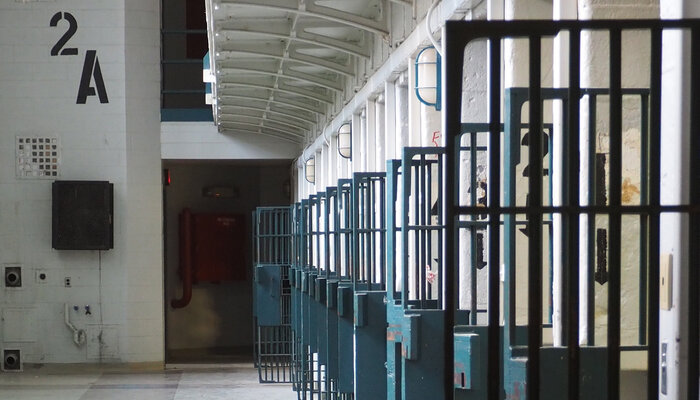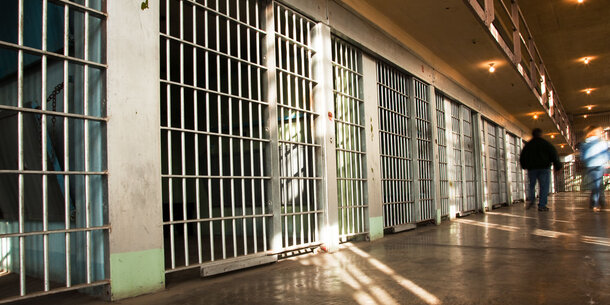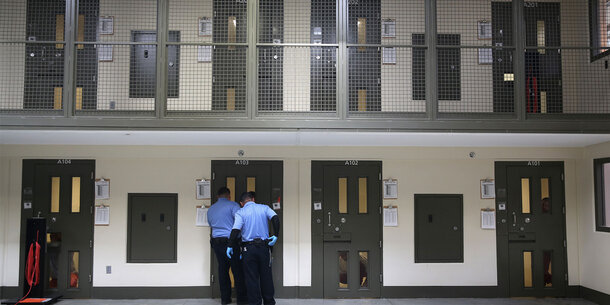Almost 2 million people are behind bars in local jails and state and federal prisons, and the racial disparities of American incarceration are striking. In 12 states, more than half the prison population is Black. Black Americans are incarcerated in state prisons at nearly 5 times the rate of white Americans. Latino people are also disproportionately affected, incarcerated in state prisons at a rate 2.5 times the incarceration rate of white people. In fact, 50 percent of federal drug cases are brought against people classified as Hispanic despite their making up just 17 percent of the U.S. population.
The Brennan Center is calling on Congress to pass a new $1 billion federal funding program — the Public Safety and Prison Reduction Act — that would channel money to states with the goal of reducing unnecessary incarceration while promoting humane and fair criminal justice policies that preserve public safety.
The grants would incentivize states to shrink their prison populations by 20 percent over three years, and states that do so would be rewarded with an extra three years of funding. The grants would also require each state to report back to the federal government detailing the ways in which they spent funds and assessing the racial, ethnic, gender, and socioeconomic outcomes of the programs and policies that were funded.
For example, the grants would fund the creation or expansion of prison programming that helps currently incarcerated people plan to successfully return to their communities. States could also use the funds to establish or expand sentencing review units within prosecutorial offices to address overcrowding, racial inequities, and sentences that are considered extreme or disproportionate.
About 500,000 people are released annually from federal and state prisons, and when released, they will find a bewildering web of around 45,000 laws, policies, and administrative sanctions that target people with criminal records, making it difficult to successfully reintegrate into their communities. Some of these measures prohibit formerly incarcerated people from voting and serving on juries. Others prevent people with records from accessing education and getting good jobs.
The Brennan Center has found that those who have been to prison face around a 50 percent reduction in annual earnings — adding up to nearly half a million dollars over the course of a lifetime. And for those who are Black or Latino, the average lost earnings over a lifetime are even more.
White individuals with a prison record miss out on around $270,000 in lifetime earnings compared to socioeconomically similar white people who have not spent time in prison. Formerly incarcerated Black people lose nearly $360,000 in earnings over a lifetime and Latino people lose over $510,000 when compared to socioeconomically similar Black and Latino people who have not been to prison.
Perhaps the worst part is that many people languishing in our nation’s prisons today simply don’t need to be there when it comes to public safety concerns. For example, more than 10 percent of our nation’s prisoners are age 55 or older, and their recidivism rate is exceptionally low. Further, 73 percent of women and 55 percent of men in state prisons have at least one mental health problem, and many of these mental health challenges are not being adequately addressed behind bars.
The federal government can and should take a more active role in fixing this, and it doesn’t have to look far to figure out how. For a half century, the federal government has used its grant-making power to spur states to incarcerate more people and to impose longer sentences. This has made the United States the most punitive country in the world, with significant racial disparities resulting from our system of mass incarceration. Instead of pushing states to be more draconian and destructive, the federal government can repurpose that same approach to reverse course and improve our system for the better.
Our nation has the tools to reduce unnecessary incarceration, and it is imperative that we do so. It starts with the passage of the Public Safety and Prison Reduction Act.




